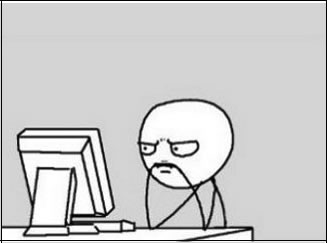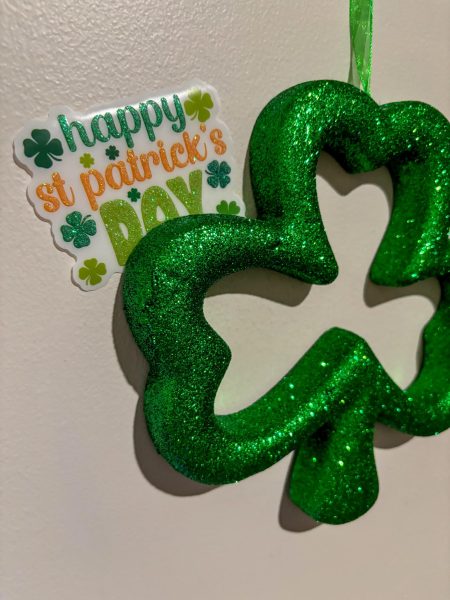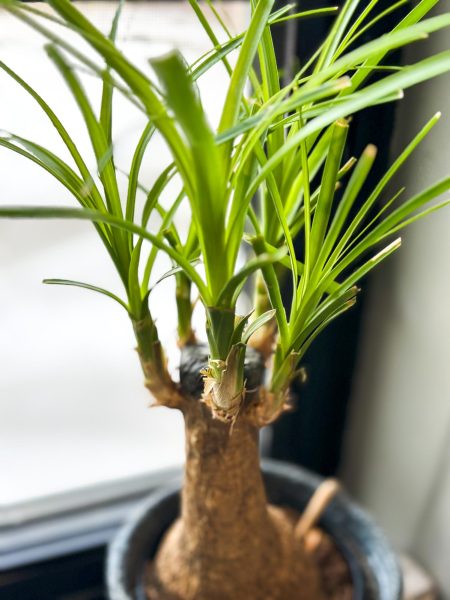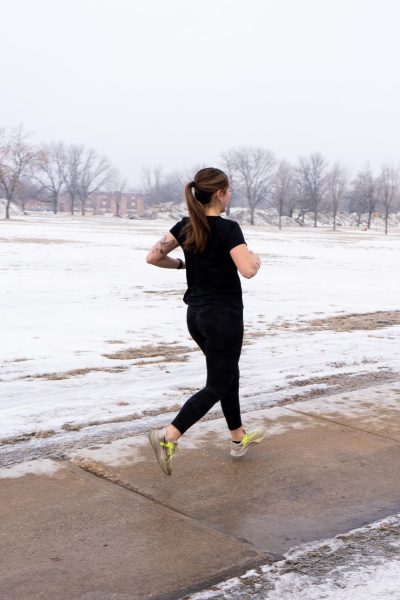Intellectual discovery at school

A familiar position for all of us, I’m sure. Photo via Reddit.
There will be, if there hasn’t been already, a class you take in college that kills you.
It constantly forces itself into your consciousness and is always present, patiently waiting for you to succumb to the holes it bores into your resolve, your spirit and your stomach with an infuriating, sinister smile on its face. Like a cat who waited until after you vacuumed to expel its dinner on the carpet.
This class may be a foundation course for your major/minor, it may be an Essential Studies requirement and it may have been taken on a whim, a foolish decision where the swish and crunch of the executioner’s scythe is not heard until after the add/drop deadline.
It’s difficult to reflect on a semester of misery with any amount of positivity, but there is an upshot to this hell: Realizing that you have not only emerged from the experience intact and limber, but also that this class and the academic toll it took on you has actually made you more self-aware and inclined to view things with a more refined level of intellectual maturity. The difficulty therein is actually thinking about something in a manner that adds levels of nuance and understanding to an experience that may not have been altogether pleasant. This sort of reflection isn’t easy, but it’s necessary, and something we need to learn how to do if we want to grow as students.
Thinking is something we do a lot of in college. We’re given the intellectual grounding to do so in a way that we weren’t when we were younger, and, in return, we are expected to mature and grow academically and intellectually.
Learning how to think as a process is a large part of what we (ideally) attend college for; we’re given the information and the tools to create and pursue our own ideas, and a large part of learning how to develop an idea is being aware of our own intellectual parameters and limitations.
“Critical thinking” is a term we see and hear a lot of while we’re in school — in and out of class, in course descriptions and descriptions for jobs we want. It’s a process of looking at the information we’ve been given and thinking about it in a systematic, deconstructive and disciplined manner that evaluates that information with more than a dash of reflective skepticism. The ability to do this is what makes our education valuable, what makes us marketable and what ultimately makes us able to construct real meaning around good and bad experiences.
So, while that required English class may have just butchered your GPA, and learning about different political systems or the geologic timeline may not seem of particular importance, there is value to be derived from what you may otherwise regard as a fundamentally “bad” situation.
This value is the ability to reflect on your intellectual experiences and consider how your failures and shortcomings make you a more self-aware individual.
Essentially, “we learn from our mistakes.”
I put this in quotations because the cliché is almost drooling with convention and because you’ve likely heard it and rolled your eyes most impressively afterwards. It isn’t something you want to hear after you’ve failed or even while you’re having a difficult time of it; it isn’t validation of your suffering, and it isn’t sympathetic.
What it does on a base level is acknowledge that there is value to be found in a situation that seems to be hell-bent on destroying you. As students at a university, the onus is on us to find meaning in our own academic deficiencies and to critically consider how these losses, botches and bungles add to our own intellectual timeline, and how they make us that much more self-aware and adjusted — potential coffee ulcers and sleepless nights aside.
Maggie O’Leary in the Multimedia Editor at The Dakota Student. She can be reached at mary.oleary@my.und.edu.








